by Adam Weinstein
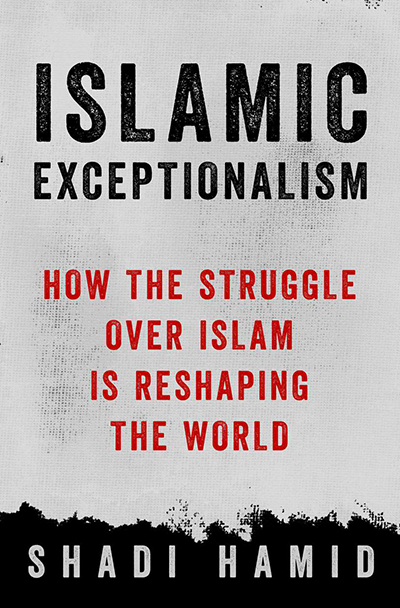 Islamic Exceptionalism is an extension of an argument earlier asserted by Hamid which is that democracy in a Muslim society will rarely produce a liberal society, but might instead further introduce Islam into public life. This is said with the reminder that Islam – even Islamism – is not monolithic. As Hamid explains ‘for many Muslims, the point of Islam is that it is accessible and straightforward, at least in its broad outlines’ (p. 42). Perhaps this is why rigid works such as Ibn Taymiyyah’s Al-Aqidah Al-Waasitiyyah have gained so much popularity in contemporary times and the Western image of Islam is one of a harsh and uncompromising ideology. But Hamid reminds us that a more nuanced approach to Islam lurks in the recent past. He cites 20thcentury scholars, such as Sudan’s Mahmoud Mohamed Taha, who distinguished the sacred from the profane elements of the Quran in defiance of the literalism encouraged by Hanbalis and insisted upon by Salafis.
Islamic Exceptionalism is an extension of an argument earlier asserted by Hamid which is that democracy in a Muslim society will rarely produce a liberal society, but might instead further introduce Islam into public life. This is said with the reminder that Islam – even Islamism – is not monolithic. As Hamid explains ‘for many Muslims, the point of Islam is that it is accessible and straightforward, at least in its broad outlines’ (p. 42). Perhaps this is why rigid works such as Ibn Taymiyyah’s Al-Aqidah Al-Waasitiyyah have gained so much popularity in contemporary times and the Western image of Islam is one of a harsh and uncompromising ideology. But Hamid reminds us that a more nuanced approach to Islam lurks in the recent past. He cites 20thcentury scholars, such as Sudan’s Mahmoud Mohamed Taha, who distinguished the sacred from the profane elements of the Quran in defiance of the literalism encouraged by Hanbalis and insisted upon by Salafis.
Hamid juxtapositions rather than compares the early development of Christianity with that of Islam to better contrast the two faiths. The history of Christianity as the religion of salvation through grace, which in its formative infancy existed as a rejected cult, is quite different from Islam, which enjoyed great political success from inception. Therefore, the notion of separation of mosque and state is in contradiction with the very essence of Islam, which is both a spiritual and legalistic faith. An overarching assertion of Hamid’s work is that politics and Islam are to remain linked for the foreseeable future.
The bulk of the book is dedicated to the case studies of the Muslim Brotherhood, Turkey and the AKP, democracy in Tunisia, and the Islamic State. The chapter on the Muslim Brotherhood particularly stands out. Hamid portrays the conflict that emerges when the restraint of an elder leadership in the Brotherhood, who thinks in decades, is measured against the discontents of a younger Facebook generation that measures time in hours. Hamid points out that in Egypt, the older leadership adopted gradualism because they ‘prioritized organizational survival above all else’ (p. 119). The tragedy of General el-Sisi’s coup is that it will forever push the Brotherhood to the right. The new generation, having lost faith in the democratic process, will now view power as a zero-sum game. To illustrate this point, Hamid recounts his discussions with Brotherhood official and journalist Asmaa Shokr, who in retrospect, believed the Brotherhood should have ‘purified state institutions’ and, if given the opportunity to rise to power again, should commit to ‘revolutionary courts, trials for military leaders – including of course, Sissi – and overhauling the state’ (p. 122). Hamid seems to possess some restrained sympathies for the Brotherhood, perhaps not for its ideology, but certainly for its members. On the one hand, this is a welcome change because he humanises an often misunderstood movement. However, at times, he seems to naively believe that more extreme elements of the organisation are merely a reaction to democratic collapse in Egypt, rather than a core ideology that would have risen to the surface with or without democracy.
If the Brotherhood’s recipe for long-term success was until recently its ability to compromise, then the Islamic State’s model of success is the complete opposite. An important caveat here that Hamid often discusses on Twitter is that Islamic law is voluminous, contradictory and open to interpretations. The Islamic State applies a fastidiously literal form of Islamic law and, in doing so, rejects centuries of Islamic thought. According to Hamid, the popularity of the Islamic State is partly a response to the humiliation Muslims face both in the West and within secular Arab dictatorships and so theodicy plays a central role in their recruitment process (pp. 222–23). Hamid reminds the reader that Tunisia was the Arab state that combined the most brutal combination of dictatorship with a campaign of secularisation. Perhaps this is why so many Tunisians have joined the Islamic State.
As he closes his chapter on the Islamic State, Hamid writes that it has ‘benefited considerably from the manifest failures of Arab governance, of an outdated regional order, and of an international community that was unwilling to act as Syria descended into savage repression and civil war’ (pg. 237). This last point is addressed more directly and clarified by Hamid outside of his book but is essential to understanding his world view. Hamid is most certainly a proponent of American interventionism and has explicitly said so. In a recent discussion Hamid pondered whether one can ‘retroactively negate’ the morality of an intervention like Iraq or Libya simply because the aftermath is bloody. He minimises the Iraq experience to a bad intervention, but does not think it is a case against all interventions. He is a defender of American intervention in Libya and proponent of it in Syria.
Islamic Exceptionalism overlooks two important case studies. First, Iran and the greater Shi’a community have already grappled with many of the questions raised in this book. Hamid justifies this exclusion by writing that ‘Iran, however, is outside the scope of this study, since its theological orientation – one based on the innovative and relatively new Shiite doctrine of ‘guardianship of the clerics’ – has not been seriously attempted anywhere else and is anathema to the Sunni Islamists who are the focus of this book’(p. 31). It is true that Khomeini’s concept of guardianship or velayat-e faqih is novel even to Shi’ism but it is important to note that there is a wide range of clerical opinions on this topic that grapple with the same questions Hamid seeks to answer. There are after all parallels and relevant comparisons that can be drawn between the Shi’a experience of the last century – especially in Iran – and more recent Sunni trends.
Second, Hamid’s book fails to consider what is perhaps the greatest experiment in reconciling democracy and Islam – Pakistan. Everything that is addressed in this book can be found in the Pakistani political scape including sectarianism, Salafism, insurgency, strongmen autocrats and, not the least of which, democracy. An examination or at least an acknowledgment of the Pakistani experience, especially since Zia ul-Haq, would have been a welcome addition to this work.
Hamid offers a portrait of the many shades of Islamists that exist amidst a national dialogue that too often focuses on radical Islamists. For the well-versed student of Islamist politics, it will sometimes feel redundant and elementary. However, hidden between pages of background information aimed at novice readers of Islam there are many interesting ideas. Unfortunately, many of Hamid’s assertions are supported only by anecdotal stories and his own musings. In Hamid’s defence, the recent timing of these events makes it difficult to provide much evidence beyond the anecdotal and theoretical. In his closing chapter, Hamid warns the West that demanding that Islamists adopt Western liberalism as a universal value is a losing battle and one that alienates Muslims around the world, even driving them into the ranks of groups like the Islamic State. This Western notion of universal rights stems from the fact that ‘democracy and liberalism have generally gone hand in hand’ (p. 249). Hamid argues that within the Muslim world democracy must come before liberalism if the latter is to exist at all. Despite some of its simplifications and omissions, Islamic Exceptionalism is a necessary book to read in order to be well-versed in current discussions about Islam and democracy.

Adam Weinstein is a third year law student and J.D. candidate at the Temple Beasley School of Law in Philadelphia, Pennsylvania where he focuses on developmental and international law. He also conducts research for the Think Tanks and Civil Societies Program at the Lauder Institute, University of Pennsylvania. His interests include the relationship of US foreign policy to development and security within the Middle East. He tweets at@AdamNoahWho and can also be reached at adam.weinstein@temple.edu.



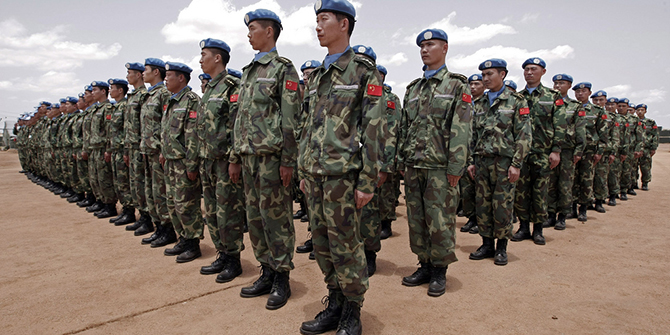
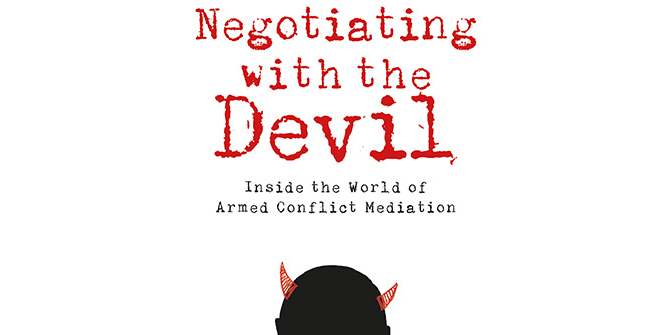
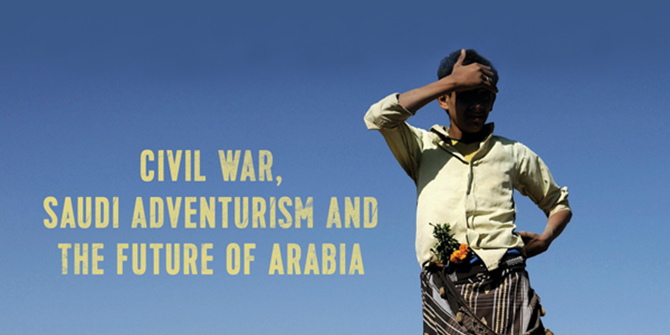
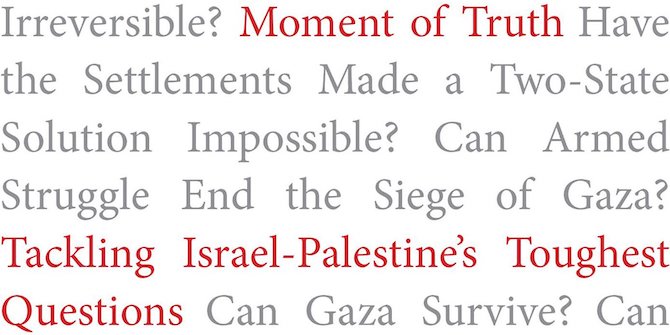
2 Comments